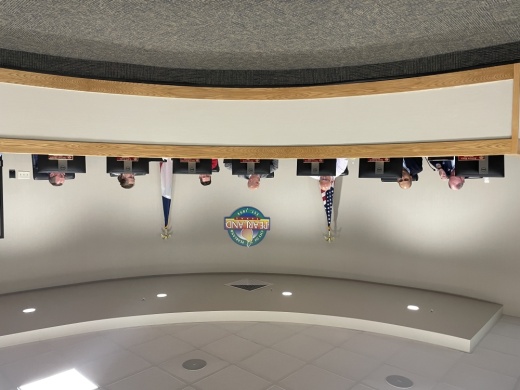Pearland City Council at its July 11 meeting passed the second reading of an ordinance that adopted new guidelines for council members to enter into deals with the city. On Aug. 22, City Council adopted a resolution reinforcing the goal of financial transparency.
“What we have is a little bit stricter now than state law with those additional state provisions,” Pearland City Attorney Darrin Coker told Community Impact Newspaper.
However, the approved ordinance is less strict than first reading proposed when it called for an absolute restriction on deals with council member connections. Additionally, the approved ordinance did away with a separate ordinance adopted May 23 that barred former council members from entering into deals with the city for at least 12 months once they left office, Council Member Adrian Hernandez said.
Restrictions on council member businesses with local governments go back to the 1990s, Coker said. Prior to the adoption of Chapter 171 of the Texas Local Government Code, restrictions were strict on council members with direct or indirect connections to a business. Deals were outlawed, Coker said.
Chapter 171 of the code loosened the restrictions and allowed deals if a council member disclosed their business stake and abstained from voting on the deal, Coker said. In 2002, Pearland voters opted to follow the new state guidelines, which the city followed until the passing of the ethics ordinance in July.
The new ordinance, which was adopted by Pearland City Council in a 4-2 vote, added two additional measures to state requirements: City Council needs to make an affirmative finding the contract is in the financial best interest of the city, and the contract needs to be approved by at least a three-fourths vote.
Council Members Hernandez and Layni Cade voted against the ordinance. Cade said she felt it was not needed. Hernandez voted against it because he felt it was too similar to the code Pearland already followed, he said.
Hernandez at the July 11 meeting called for enhanced disclosures, which was unanimously passed by council at the Aug. 22 meeting. The enhanced disclosures take information—such as council member finance reports, agreements with the city and gifts received—and display them on a public disclosure page, Coker said.
“These are things that I believe the government should be doing regardless,” Hernandez said. “It is an opportunity for us to improve, and not in an effort to regain confidence, but rather to improve that confidence. That is how I look at it.”





